Our Blog - Tuscany 2024 Trip - Tour of an organic Parmigiano Reggiano cheese producer near Modena, Italy
Our cheese tour was at the Caseificio Bio Reggiani, which is a family run farm and cheese producer. The family has been farming, breeding, and producing milk for generations. In 2005, they converted the production chain of the dairy to organic. In addition to being organic, they are a "closed system" producer, meaning that they grow the grass (organically) that is then fed to the cows that are on their farm, that are then milked to produce the cheese.
They had agreed to letting Lucy in the tour, as long as she remained in her backpack and I stood a bit away from all of the containers and cheeses. She was quite happy when she heard she was going on a cheese tour!
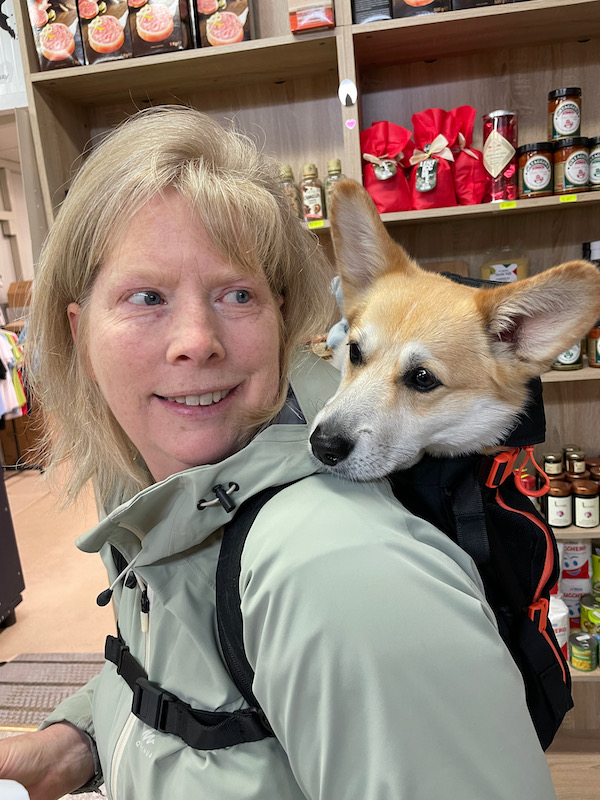
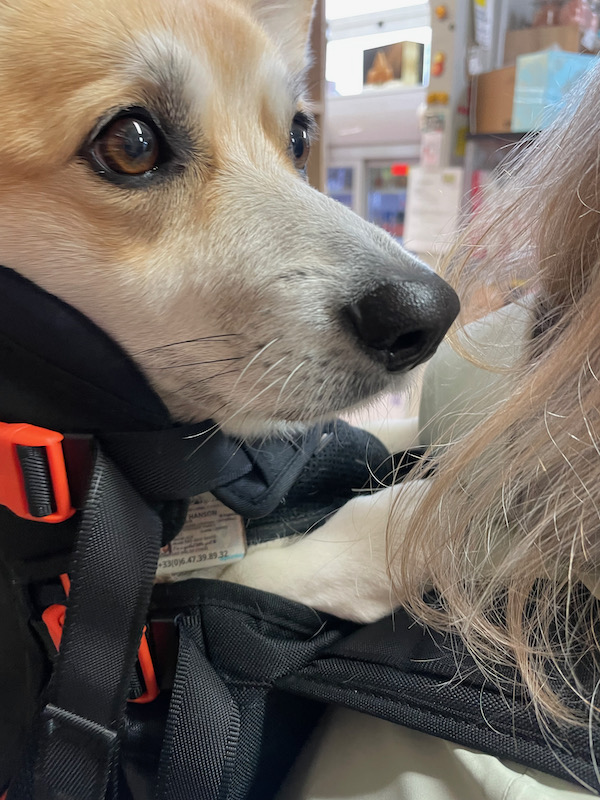
We started in this room, full of this large copper pots and shallow rectangular beds. He explained how the cows get milked twice a day and the milk comes directly into this room. The evening milking goes into these rectangular beds and it sits so that the fat separates from the milk. Then next morning, the cow are milked again and the whole milk morning milk is added to the skim part of last nights milking so that it gets to proper percentage of fat. The fat that is removed can be used to make other kinds of cheese or butter.
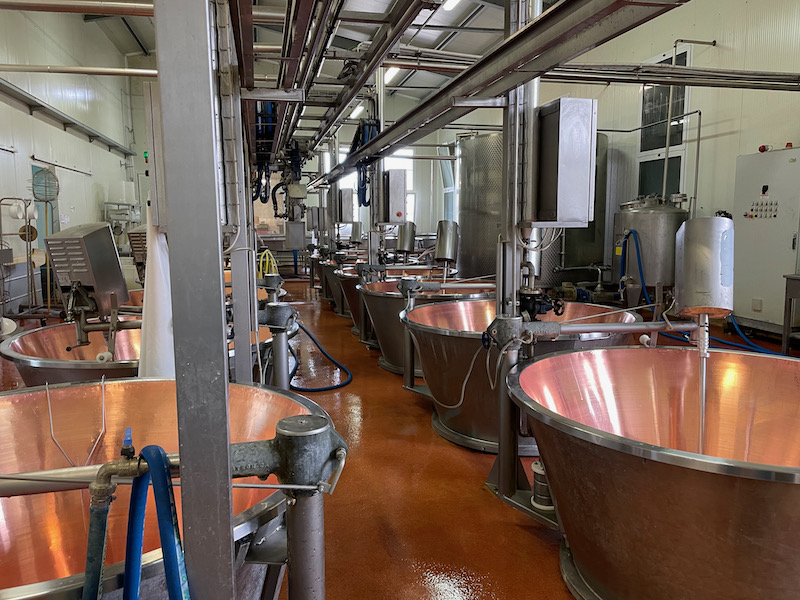
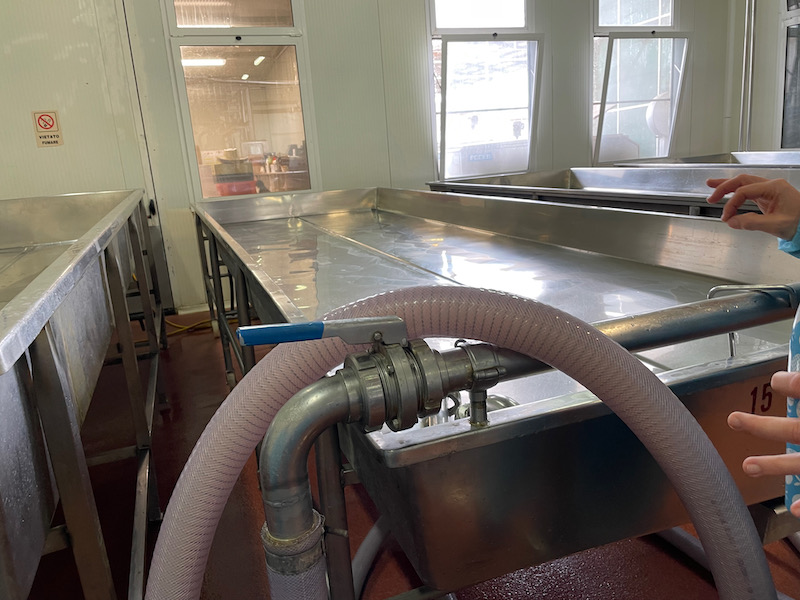
This combined milk then goes into these huge copper pots where it is heated, the rennet added, and the wheel inside turns to cut the curds as they are produced.
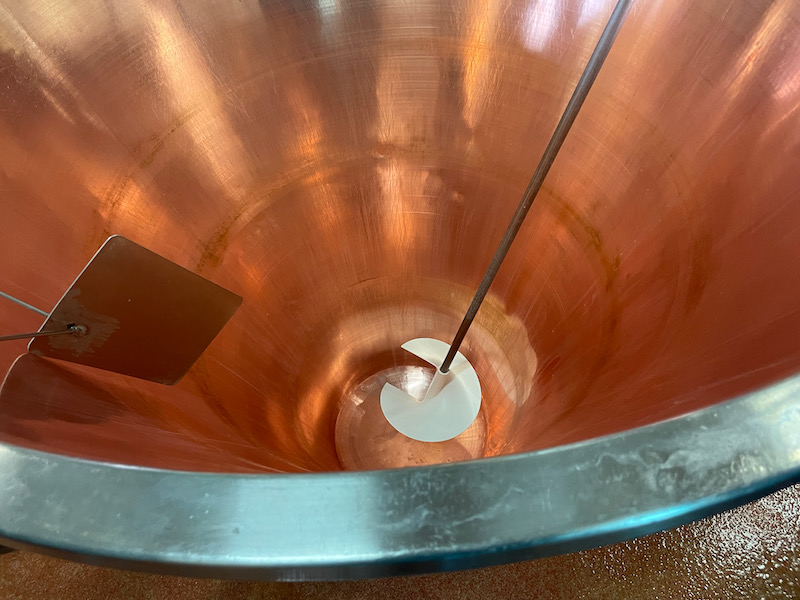
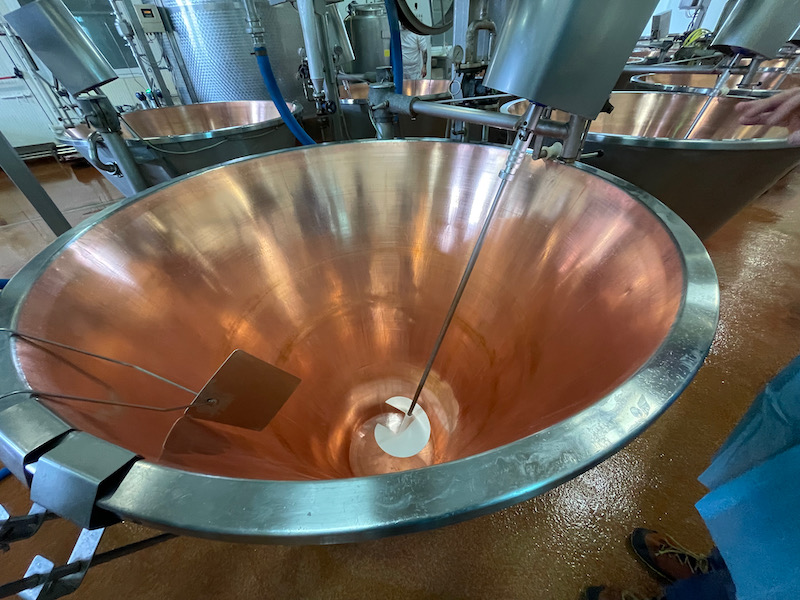
Once it is ready, the curds are collected in a cloth and put into these little contraptions, which are turned a couple of times. This presses the cheese and allows the excess water to come out. They then remove the cloth and wrap around a plastic sheet that has all the impressions of what will be seen on the outside of the parmesan cheese wheel, which includes the unique number of the specific producer (in our case, 1002) and the date (APR 24 for April 2024). After a bit of hardening, the wheels are transferred into a huge vat of salt water where they sit for about 20 days. This continues to harden the exterior rind and releases moisture. At the end of that time, the outside couple of inches are salty and hardened slightly but the interior is still soft and the salt hasn't penetrated in that far.
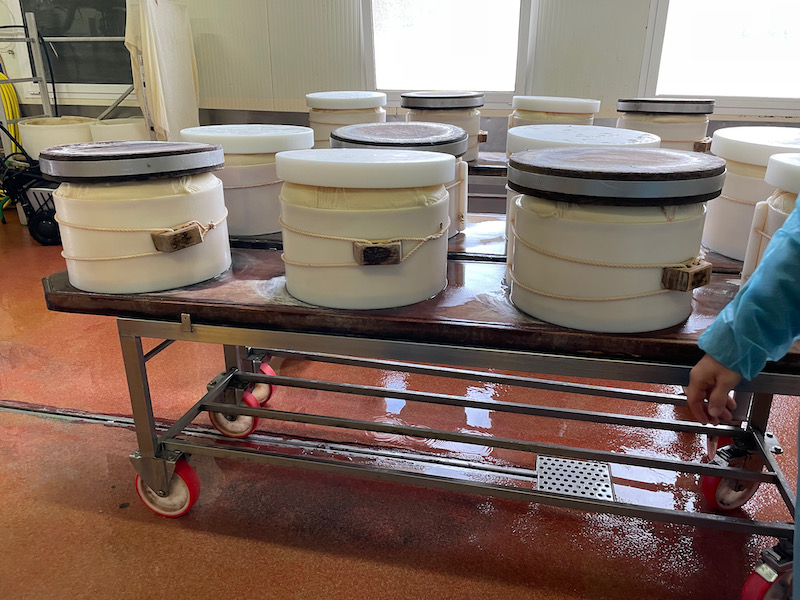
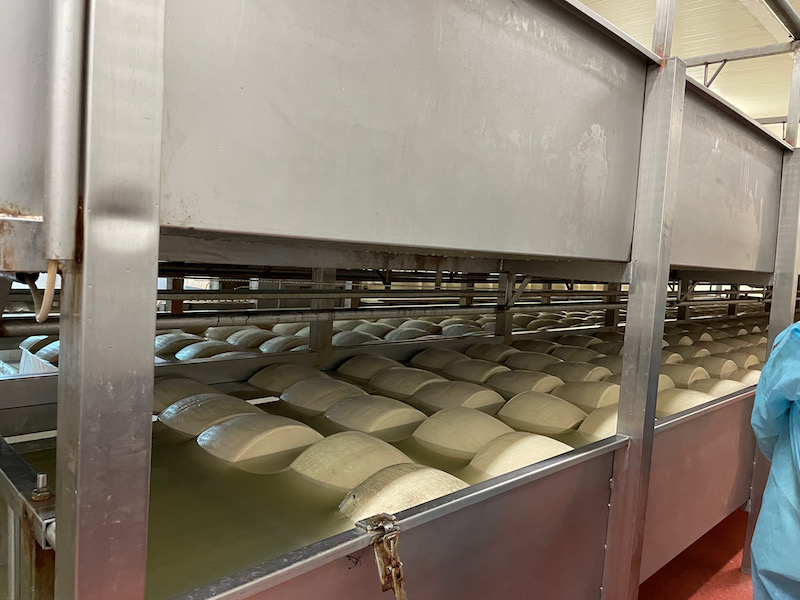
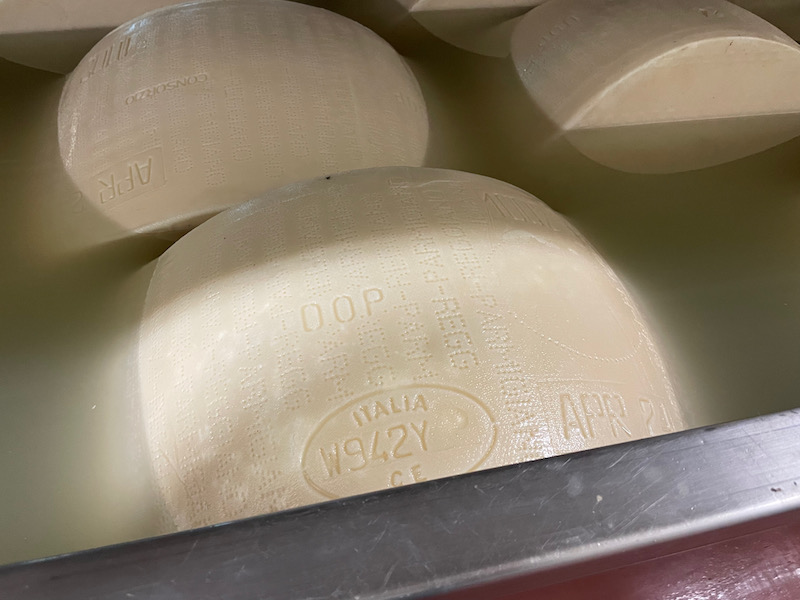
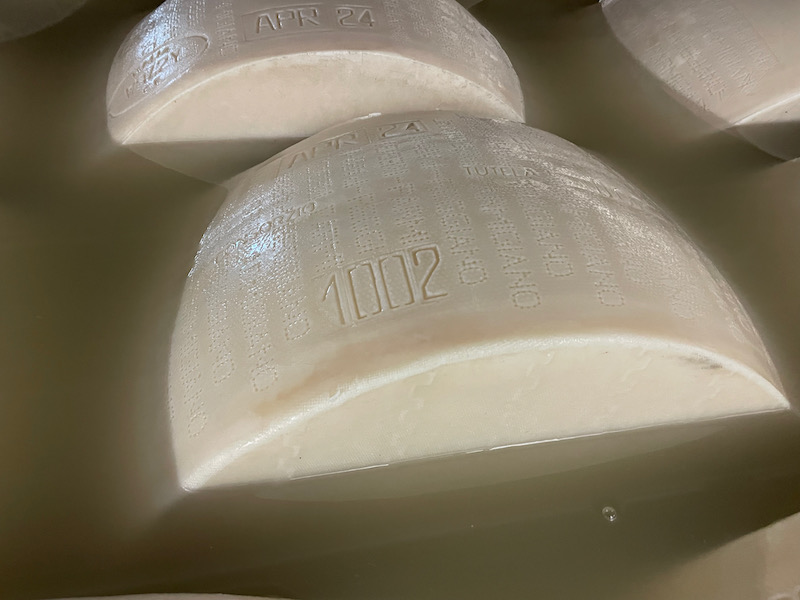
Then they are moved onto wooden shelves where they sit for quite awhile. They get checked by inspectors to ensure everything is going well with the aging process and there is a machine which goes through and flips the wheels over periodically. Here you can see the massive amount of cheese wheels that are aging in this producer warehouse. You can also see that they have different colors ... they get darker and harder as they age. This aging also allows the salt to penetrate through to the center of the wheel. In the last picture, you can see the brown "burned" logo .. this is added by an inspector to indicate it is "truly" a Parmigiano Reggiano cheese (and not just any ordinary parmesan cheese). They age the wheels for different amounts of time ... as short as 12 months and as long as 90 months or more.
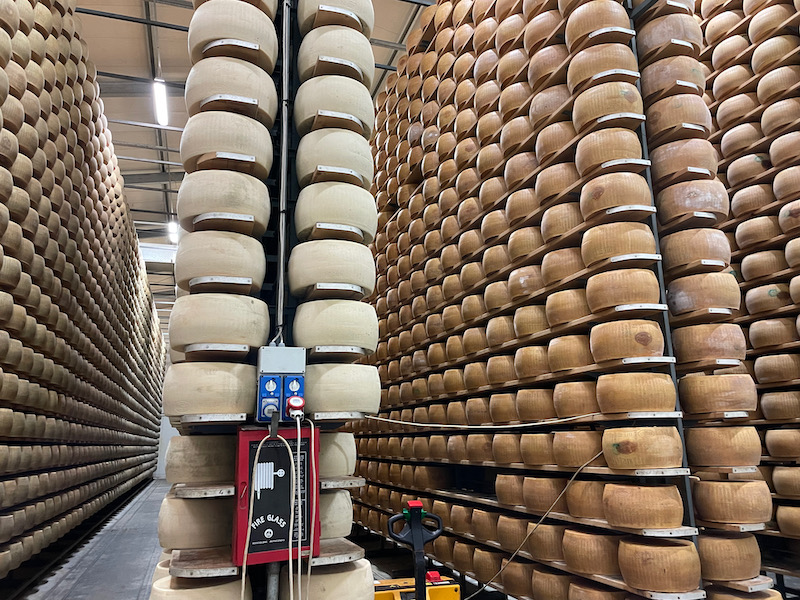
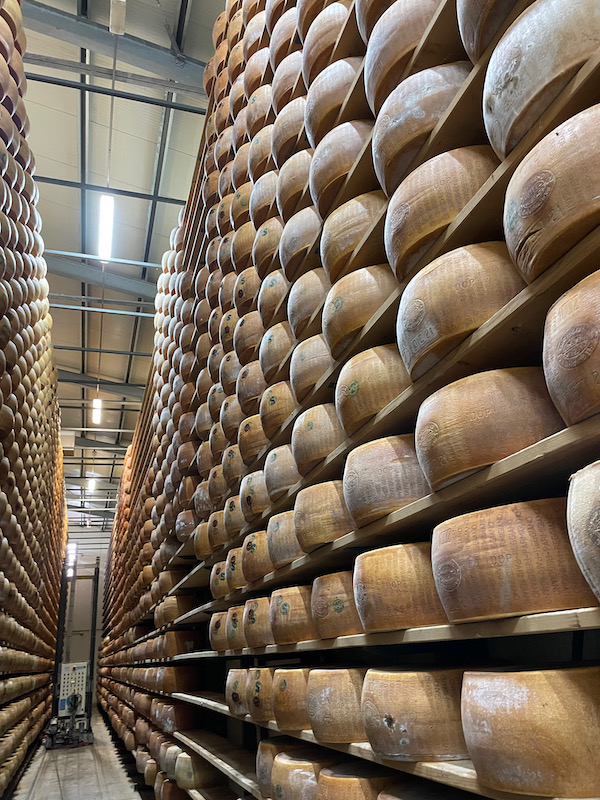
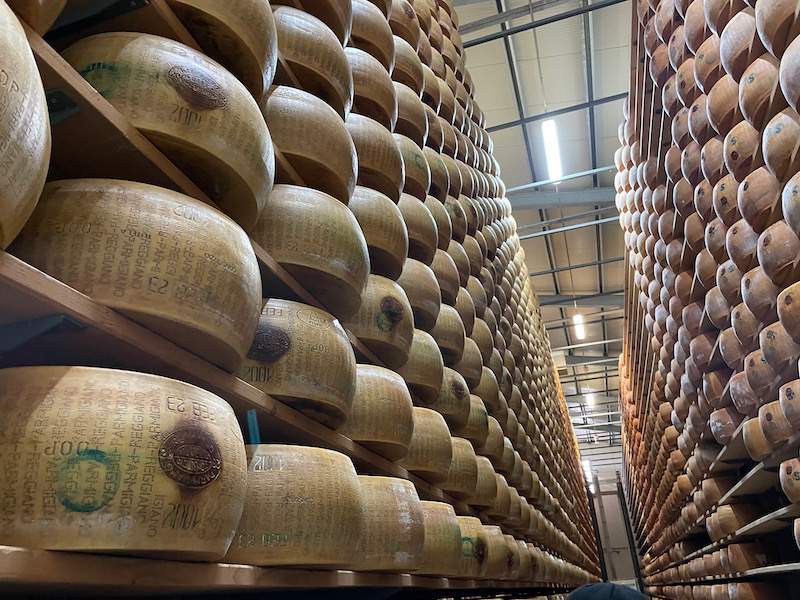
We then went outside to see where the process starts ... to see the "Happy Cows" and talked a bit about the change-over to an organic farm that they family did in 2005 and how they have their own fields to grow the hay. He also explained how they use the cow manure for fertilizer and some amount of power production.
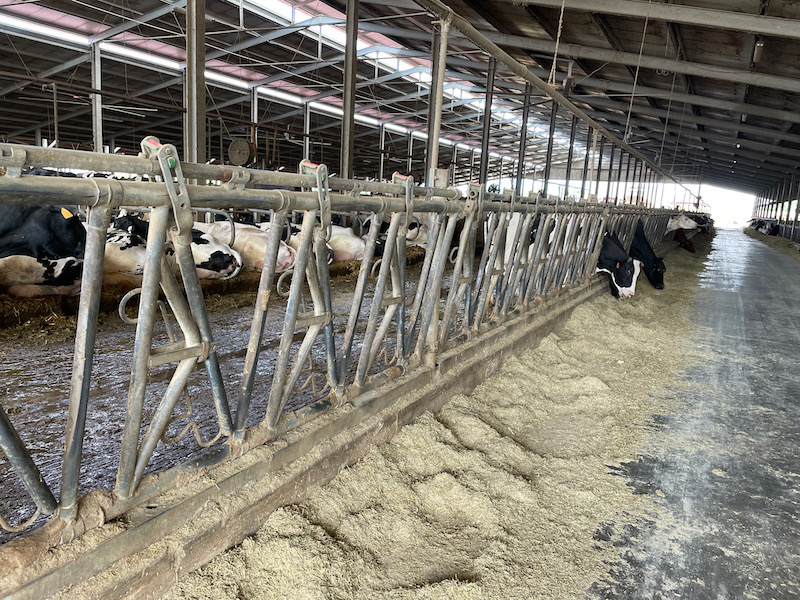
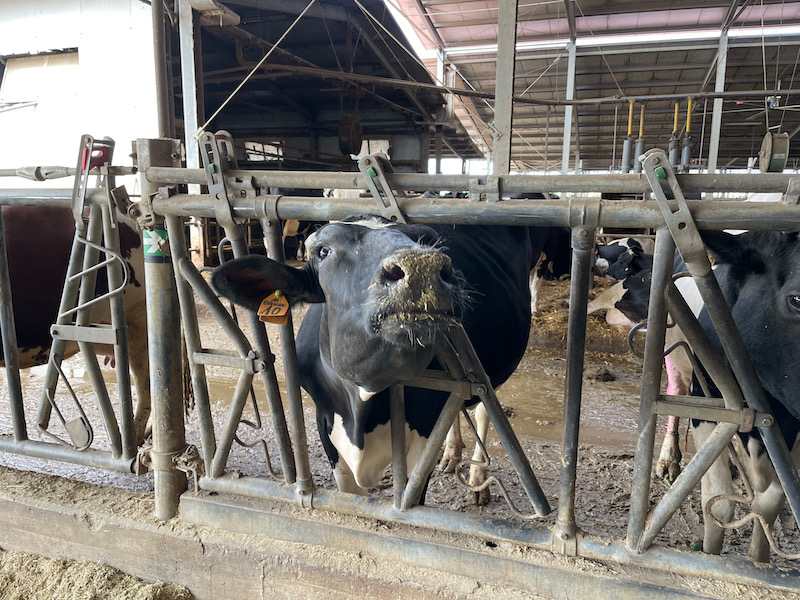
Then we headed into an area for the tasting (which I didn't do pictures of). We tasted several different cheeses including the organic Parmigiano Reggiano at 24 months, 36 months, and 90 months. He mentioned that most Italian households would have something around 24 months (some younger, some slightly older) that they would use as "table" cheese, which would mean it would get grated on top as you are serving the meal at the table. The older cheeses, like the 60 to 90 month ones, are more what you would get on a cheese plate as an aperitif or after the meal as a dessert. We also tried a fresh Caciotta cheese, which comes in various ages and textures, from fresh and creamy to aged and semi-firm. We did a fresh caciotta, which was made the day before. Lucy was quite unhappy when she learned that she had did the entire tour and didn't get to taste the cheese!